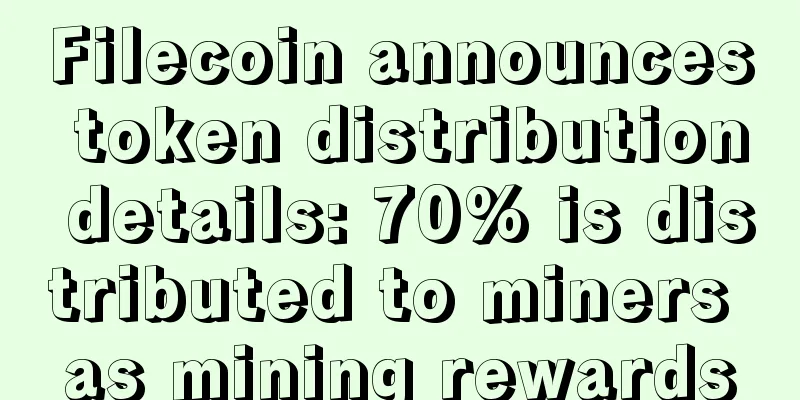Huobi.com and F2Pool cooperate to speed up users’ Bitcoin transfers

|
Not long ago, the Bitcoin network was congested due to a surge in the number of network transfers. Usually, transfers take 10 to 60 minutes to arrive, but on that day, many people's transfers took more than ten hours to be confirmed. Many novices did not understand the reason, and even caused panic among a small number of players. For novices, there are two issues about Bitcoin network transfer fees that need to be understood. 1. What is the transfer fee? First of all, Bitcoin can be sent to any corner of the world, relying on the hard work of miners who maintain the network. Usually you have to pay a transaction fee to complete the transfer. Currently, the default transfer fee of Bitcoin wallet is 0.0001 Bitcoin. This fee is rewarded to miners to encourage them to continue mining and provide enough computing power for Bitcoin to ensure the security of the Bitcoin network. Under normal conditions, the number of transfers in the Bitcoin network will stabilize within a certain range every 10 minutes. Miners help everyone complete transfers by packaging transactions in the network into blocks and earn fees from it. At this time, the network produces a block every 10 minutes, and the maximum block size is 1M, which can meet the existing transaction needs. But this is only a normal state. With the increase in the number of transfers, there will be more and more traders who are not in line. Transactions that are not in line will be confirmed in the next block. After the number of transfers increased dramatically, more and more transactions were stranded. Because miners also have costs to maintain the network, miners naturally choose to package transactions with high transfer fees first, and transactions that only give ordinary transfer fees of 0.0001BTC will be blocked on the network and can only wait endlessly for miners to package and confirm. 2. Who collects the transfer fee? Currently, the main income of miners is to get 25BTC reward by creating new blocks, but this reward is halved every 4 years. As time goes by, the Bitcoin transaction fee reward will gradually replace the reward for creating new blocks. Generally speaking, the larger the amount and the higher the age of the coin, the higher the priority. If the amount you send is too small or your Bitcoin has just been mined, your transfer will not be free. 3. Workaround In the long run, the key to solving this problem is to improve the efficiency of miners in confirming transactions, that is, to expand the block size. This solution is currently being hotly debated by the global Bitcoin community. In the short term, a more realistic solution is to allow users to choose the transfer fee by themselves and to divert transfer transactions in a graded manner. Some exchanges will choose to cooperate with mining pools to allow miners to prioritize the packaging of transactions on their own platforms. For example, Huobi.com has reached a cooperation with F2Pool. Huobi will push the transaction information on its platform to F2Pool for processing, and F2Pool will give priority to Bitcoin transfer applications related to Huobi.com addresses. The Bitcoin network transfer fee column on Huobi.com and other trading platforms can add a transfer fee list of 0.0001BTC to 0.0005BTC, which can be set independently according to the degree of urgency when transferring transactions. |
<<: Coinimal supports OKPAY, making bitcoin and ether purchases more convenient
>>: Microsoft tries innovative applications of Bitcoin blockchain
Recommend
Several well-known cryptocurrency-related Twitter accounts have been shut down
According to CoinDesk on March 10, several crypto...
A battle for survival: nano-scale competition among miners
A tiny chip that can only be seen in the microsco...
If she doesn't marry Liu Qiangdong, she will marry another wealthy man!
Liu Qiangdong talked about Milk Tea Sister Zhang ...
What does the wife and concubine palace mean?
What is the Palace of Wife and Concubine? Where i...
Nervos CKB mainnet computing power increased to 4PH/s, a monthly increase of nearly 20 times
According to BlockBeats, according to CKB Explore...
What Circle's e-money license means for Bitcoin and blockchain
Rage Comment : Circle has become the world's ...
Power consumption and computing power options are decided by miners, S19pro water cooling upgrade test
In the last test, we completed the evolution of S...
xpp mining tutorial - Cryptonight-Fast algorithm, can be mined with CPU or graphics card
PrivatePay is a privacy currency that will bring ...
How does a woman with a mole on her forehead look like?
The Yin Tang refers to the area between the two e...
A woman has a mole on her right foot
Some people have moles on their hands, some peopl...
Basic Coin (BAC) is launched on JuBi.com: snap-up mode starts on the 28th!
After much anticipation, it’s finally here! At mi...
PwC report: Blockchain can help the development of wholesale insurance industry (download the full report)
Consulting giant PwC has released a new report ti...
A woman with a mole on the upper left corner of her mouth
We have moles all over our body, and almost every...
Is the fate of a woman with three moles on the back of her neck good?
In physiognomy, different positions of moles repr...
The length of fingers can tell a person's personality
Each finger has a different meaning, and a person...









